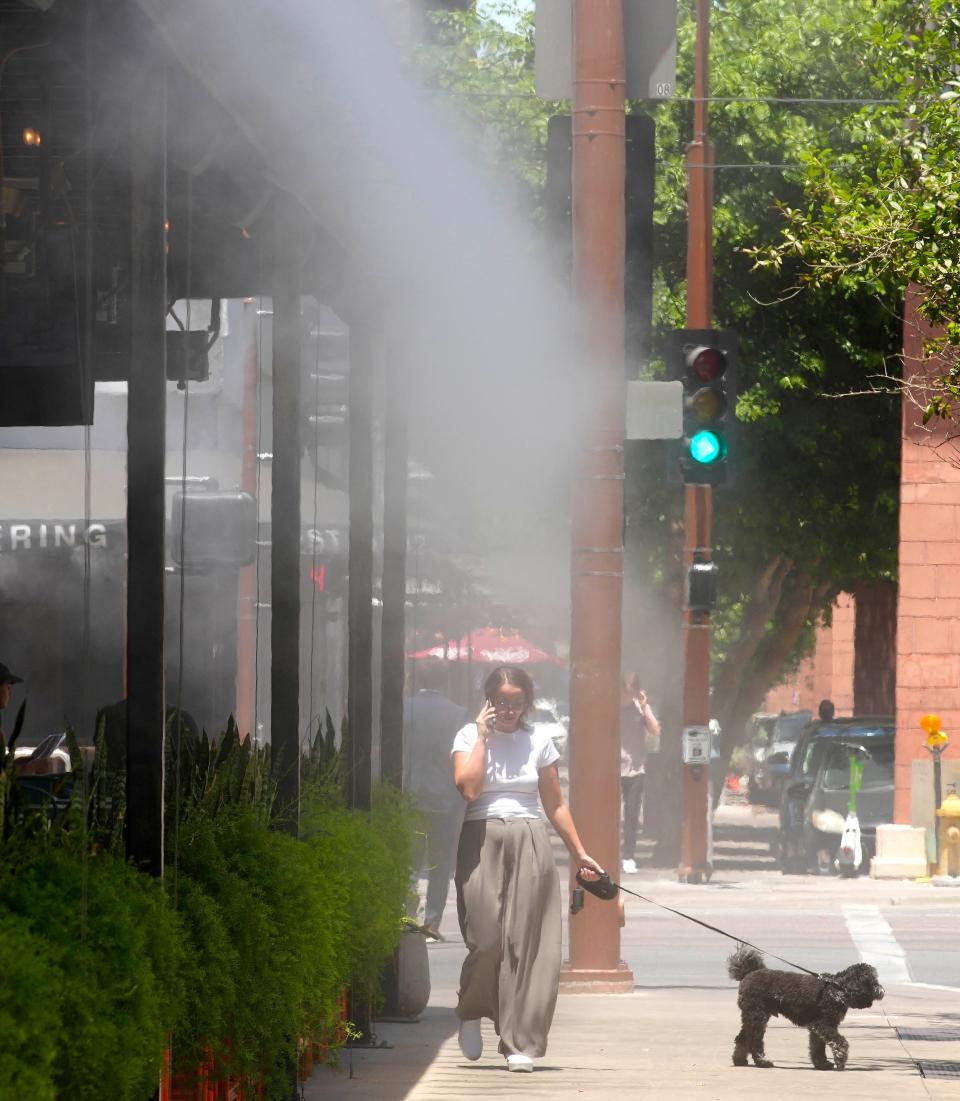90-degree lows, once rare, are now common in Phoenix. Are 100-degree lows next?
Overnight summer lows of 90 degrees or above have become common in Phoenix, which is on pace to set another record for the most nights in the 90s this year.
Which raises a question that seems almost unthinkable.
Could a 100-degree night be next?
Yes, says Matt Salerno, a meteorologist with the National Weather Service in Phoenix.
"I'd say it is possible the way things have been trending," Salerno said.
Here is how things have been trending.
There have already been 16 nights this summer when the minimum temperature at Sky Harbor International Airport did not fall below 90. That is the highest number of 90-degree or warmer nights for the period from June 1 through July 11 of any year. It's more than twice as many as the seven 90-degree or above nights through July 11 in 2013 and 2021, the previous records, according to National Weather Service data. The 16 nights also means this summer has already had the third-most 90-degree or above lows of any summer.
As of Thursday, the temperature had not gone below 90 for 10 consecutive days, including an overnight low of 93 degrees on July 11, according to Salerno and the National Weather Service. Wednesday's 92-degree low set an all-time record for the highest minimum for July 10.
And on June 27, the overnight low was 95 degrees, setting an all-time record for the warmest night in June. The previous record for the warmest low in June was 93 degrees in 1990.
And since June 27, there have been only two nights when the temperature dipped below 90. So that is nearly two weeks straight of 90-degree or warmer temperatures.
"So it's been extremely warm. There's been no relief overnight," Salerno said.

At this rate, Phoenix could beat last summer's all-time record for 90-degree or above nights. There were 35, which shattered the previous record of 28 in 2020.
The record for the warmest night ever in Phoenix was also set last summer — on July 19 — when the low temperature was 97 degrees.
"That is just three degrees off" of a possible 100-degree night, Salerno noted. So, a 100-degree night is definitely in the realm of possibility for Phoenix.
There was a time when it was almost unheard of for the temperature in Phoenix to not dip below 90, despite the city's reputation as the hottest city in America.
From 1934 to 1970, a span of 36 years, it only happened three times, once in 1934, once in 1936 and once in 1970, Salerno said.
But by the 1980s, 90-degree nights started to become regular. Since 1992, the temperature has stayed above 90 at night at least once each summer, Salerno said.
Why is Phoenix experiencing so many 90-degree nights? Increased urbanization, which contributes to the urban heat island effect, is a primary reason, Salerno said. An increase in concrete and buildings absorbs and retains heat throughout the day, making it harder to cool down at night.
"That's really what has been driving these overnight lows we've been seeing. So it is possible that we could not fall below 100 degrees," Salerno said.
Temperature records are measured at Sky Harbor in the center of metro Phoenix, where it tends to be the hottest.
"The farther you get from the city center, the cooler you can get at night," Salerno said.
Reach the reporter at daniel.gonzalez@arizonarepublic.com.
This article originally appeared on Arizona Republic: Will Phoenix experience a 100-degree low someday soon? It's possible

